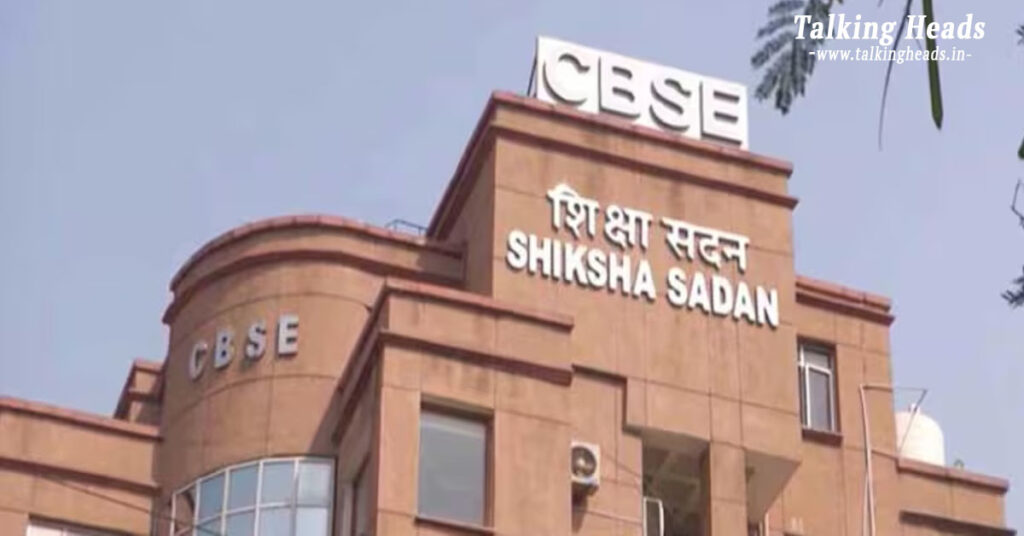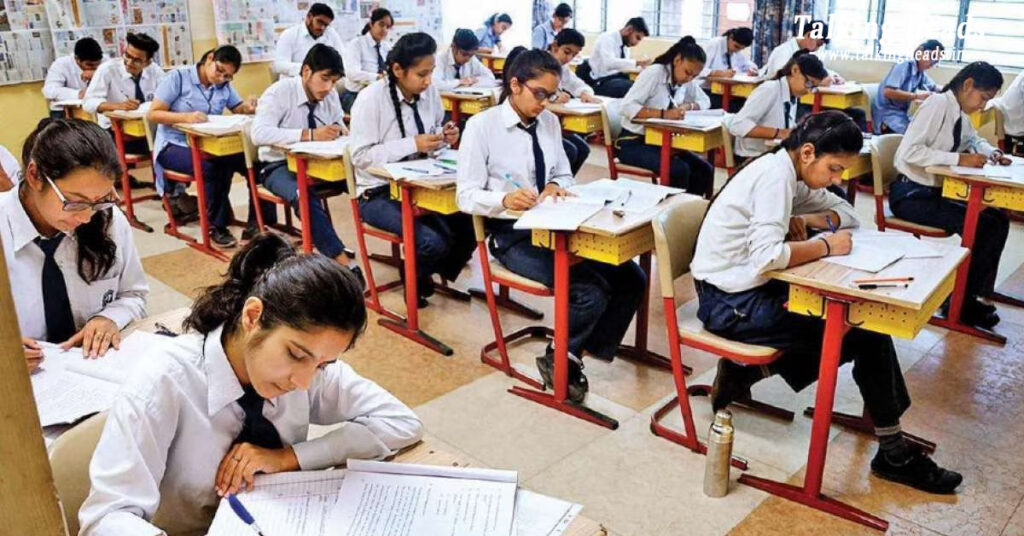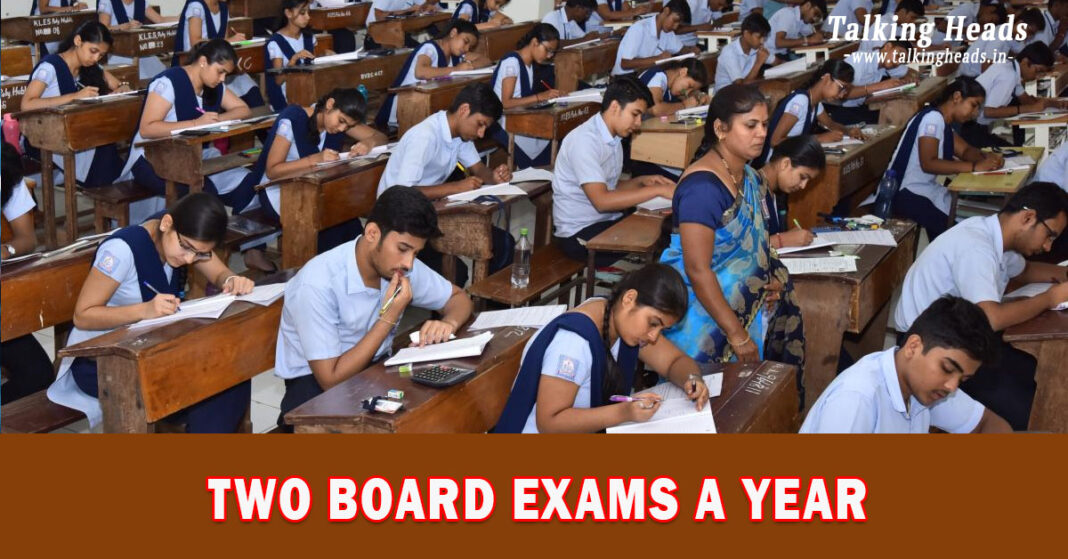What Are the New Rules?
Board Exams : The Central Board of Secondary Education (CBSE) has made major announcements regarding the curriculum and examination system for classes 9 and 10. The most prominent change is the addition of two board exams annually for class 10. In addition to this, there are also proposals to shorten the duration of exams and add a two-tier curriculum option for some subjects. These reforms are in line with the National Education Policy (NEP) 2020 and are likely to enhance student performance.
Table of Contents
Draft of the new rules issued
In a dramatic change, CBSE has declared that class 10 students will now be able to take the board exam twice a year. A draft of the new rules was issued by CBSE on Tuesday, which laid out the major points. According to the new guidelines, students can choose to take one or both of the board exams. If students opt for the later exam, they may skip subjects they are not interested in pursuing further.

Additionally, one of these two examinations will be an “improvement” examination, which will enable students to improve their marks if necessary. The duration of board exams is being lowered from the current 32 days to mere 16-18 days. The first half of the exams are likely to be conducted between February 17 and March 6, while the second half will be conducted from May 5 to May 20.
This shift will result in students receiving a gap of one or two days between the two phases, a considerable decrease from the existing five-to-ten-day gap. The results of the first phase will be announced by April 20, and the second phase results will be out by June 30.
CBSE has invited feedback from all stakeholders such as schools, teachers, parents, students, and the general public to offer their suggestions on the draft by March 9. The new regulations are likely to be put into effect from next year.
Curriculum Updates: Two-Tier System for Science and Social Science
Along with the reforms in the examination system, CBSE is also implementing a two-tier curriculum for Science and Social Science in class 9 and 10. The change has been approved by the governing body, and it will provide students with the flexibility to opt for two levels: Standard and Advanced. The change will be first implemented for class 9 next year, and it is likely to be implemented in class 10 board exams from 2028.
The reasoning for providing two levels for such subjects is to enhance the performance of students and facilitate preparation for future entrance exams. As per the National Education Policy (NEP) 2020, all subjects, including Mathematics, must be taught at both standard and advanced levels, with the option for students to choose depending on their interest and capability.
Under the changes, NCERT will also prepare textbooks for standard and advanced levels. CBSE Chairman Rahul Singh clarified that the advanced level curriculum for class 10 Science and Social Science will have more content. The exam could have more questions for the advanced level, or separate question papers might be prepared.
NCERT Textbooks and Future Plans
According to the new curriculum structure, NCERT has been assigned to develop new textbooks for all classes. New books for classes 1 and 2 were launched in 2023, followed by new textbooks for classes 3 to 6 in 2024. Textbooks for classes 4, 5, 7, and 8 will be launched this year. According to CBSE Chairman Rahul Singh, new textbooks for class 9 will be available for the academic year of 2026-2027.
What Does This Mean for Students?
These changes as suggested are under a larger reform plan to revolutionize education and give the student more flexibility during their educational quest. Two board exams every year provide students the chance to rewrite and improve on their marks, as well as better cope with their studies. The two-division format of Science and Social Science will give students better exposure to facing higher-level competitive examinations and the liberty to take on subjects at their level of abilities.

For students, these reforms are a move towards a more dynamic and adaptive education system. But it should be kept in mind that these proposals are yet to be finalized and CBSE is inviting comments from all stakeholders before finalizing the rules. Once implemented, these reforms will be a major step towards bringing education in line with the principles set out in NEP 2020.
CBSE’s recent developments, such as the launch of two board exams annually and the two-tier curriculum for Science and Social Science, represent a wider move towards flexibility, student-focused learning, and more effective preparation for upcoming exams. Although these changes are still at the planning stage, they give us an optimistic insight into India’s educational future. Pupils, educators, and guardians must remain educated and express themselves to make the smooth implementation of these reforms during the subsequent years of schooling.










